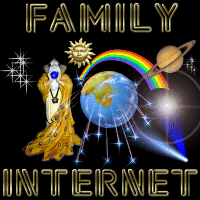|
Written: January 12, 1999
The 21st Century is literally just around the corner. Researchers, educators, economists, and sociologists have looked
carefully at the economic and social trends that are likely to occur in this next millenium. One major
trend predicted will be the advent of the "Knowledge Worker". Students and employees will be expected
to be able to work competently with all forms of computers and technology. They will need to be able to
quickly embrace new ideas and methods. How people interpret and present information
will be important. Schools and companies will recognize that the finest resource is not material, but human. Brain power
will count just as much as producing power. People will be seen as a corporation's most important asset. Companies that
capitalize on their intellectual resources will prosper, and those that do not will flounder.
Age of the Knowledge Worker
Knowledge Workers will be comfortable:
- Working in local and virtual teams
- Working with advanced technology and computers
- Functioning as mediators of information
- Demonstrating advanced oral and written communication skills
- Thinking critically, creatively, and analytically
- Demonstrating personal resilency and confidence
- Adapting to change, being flexible
- Engaging in life-long learning
- Working within social, organizational, and technological systems
- Working with cultural diversity and globalization trends
- Exercising leadership skills
- Exercising problem-solving skills
- With conflict resolution and negotiation
Preparing your Family
Now is the perfect time to begin to cultivate the talents and skills necessary to thrive in the 21st Century. Parents
can help both themselves and their children to greet this new era confidently. The Internet is
one handy tool to use for just such preparation. Safe, purposeful excursions on the Internet, can help both you
and your children to develop crucial skills for the future.
Whether working on homework assignments, researching car prices, searching for a recipe, or participating in
an on-line chat discussion, skill development can be cultivated. Don't be afraid to let your children explore, just make
sure they use a safe, child-friendly browser to access the information they seek. The next time you and your family use the Internet,
observe how the following tasks are or could be incorporated.
Using 21st Century Skills to cruise the Internet
The next time you get on-line, take time to notice how you and your family do the following:
- Define the task or problem
- Identify the information you need
- Exercise information-seeking strategies
- Select the most reliable sources of information
- Find the most pertinent information from selected sources
- Download and extract the most relevant information
- Synthesize and organize the information gathered
- Evaluate the content of the gathered information
- Communicate with others on-line via e-mail or chats
Internet Sources of Information on 21st Century Skills
Robert Kizlik of Florida State University, offers a thoughtful essay on how technology can and will be used
to cultivate 21st Century cognitive skills in children and adults. His article,
Connective Transactions - Technology and Thinking Skills is both enlightening and entertaining.
The San Diego County Office of Education
offers a clear overview of the skills students will need in the 21st Century. Their school to career transition webpage outlines
strategies for parents and teachers, along with a thorough discussion of future career trends.
Thornburg Center Associates offer an interesting assortment of downloadable
handouts and papers (many in Acrobat Adobe PDF format) on future skills, technology and education, and the 21st Century. Such titles as,
"Campfires in Cyberspace: Primordial Metaphors for Learning in the 21st Century," "Putting the Web to Work, " and
"Plug and Play: The Technological Classroom of Tomorrow" are two of dozens of informative documents featured on their
Shifting Gears site for parents, teens, and teachers.
LT21 an initiative of the Commonwealth of Pennsylvania Infrastructure
Investment Project, presents a useful table of Internet and computer applications that can help children, teens, and adults develop 21st
Century Skills. This compilation, titled, Technology Tools Required to Support Information Literacy Skills in the 21st Century
offers a visual guide for selecting on-line activities to help your family prepare confidently for the future.
Braindance.com provides a wonderful tool for older children, teens,
and parents to learn future skills development techniques. Illustrated guides about mind-mapping, reading skills, learning skills, memory
enhancement, and metalearning can be downloaded to help your family develop life-long learning skills with depth and flexibility. Helps
to build knowledge workers for the future!
|
